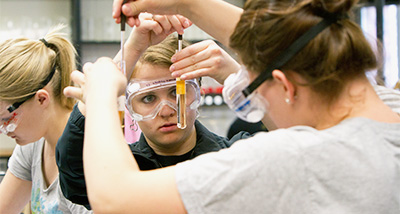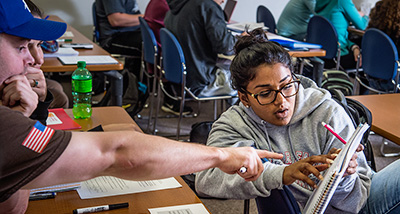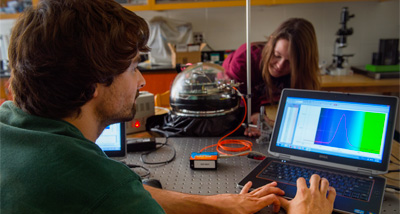
Why Study Engineering?
Major | Engineering/Science | CAFES/CAS
A leader in science education, UW-River Falls provides a solid educational foundation for engineering students, no matter your degree path. You’ll have access to personalized hands-on learning, extensive research opportunities, professional development and so much more.
Students pursuing engineering at UWRF have multiple degree paths. Explore the possibilities in our Center for Engineering Studies.
For information on Engineering, Environmental Engineering or Engineering Technology, contact the AET Department at engineering@uwrf.edu or 715-425-3985
For information on Pre-Engineering or Physics/Engineering Dual Degree (mechanical, electrical, civil, aerospace and more engineering areas), contact the Physics Department at physics@uwrf.edu or 715-425-3235.
Program Details
Bachelor’s Degrees: We offer a four-year B.S. in engineering (with options in machinery systems, natural resources and environmental systems, and food and process systems), environmental engineering, engineering technology (with options in test engineering technology, civil and environmental engineering technology, food and bioprocessing technology, and agricultural systems management), and applied physics for industry and engineering.
Dual Degree: You’ll complete about three years of physics, chemistry, math, engineering and general education coursework at UWRF and then about two years of upper-level engineering courses at a highly-regarded partner institution such as UM-Twin Cities, UW-Madison or UW-Milwaukee, among others. Upon completion, you’ll earn two bachelor’s degrees: one in applied physics for industry and engineering from UWRF and one in engineering from the partner school.
Pre-Engineering: You’ll complete about two years at UWRF and about two years at an engineering university. UWRF offers all the physics, mathematics and chemistry you’ll need, plus your first engineering and electronics courses. You’ll benefit from our affordable tuition and supportive environment while making progress toward your degree.
700+
Students in Honors Programs
67%
Of Students Received Financial Aid in 2022-2023
99%
Of Grads are Employed or Attending Grad School
Engineering
cafes@uwrf.edu // 715-425-3535
cas@uwrf.edu // 715-425-3777
Your Degree:
Pre-Professional/Undergraduate
Area of Study:
Engineering/Science
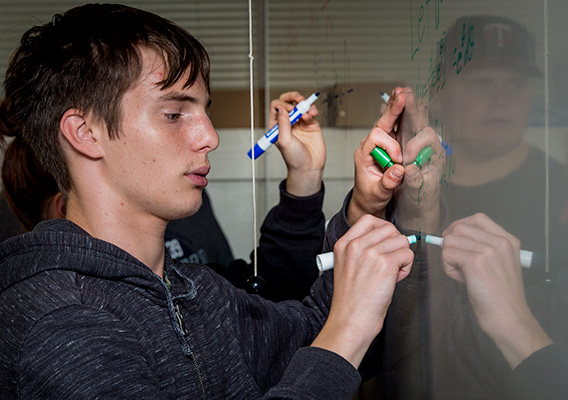
Skills and Learning Outcomes
- Understand and apply physics and math principles to practical and applied technical problems.
- Gain experience with instrumentation and develop proficiency in collecting and interpreting data.
- Research and develop new products and processes.
- Determine why objects fail and how to prevent future failures.
- Practice collaboration, oral presentation, scientific writing and laboratory safety skills.
- Develop problem-solving and critical thinking skills.
Types of Courses
- Dynamics
- Engineering Fluid Mechanics
- Engineering Thermodynamics
- Intro to Computer Aided Design
- Machine Design
- Programming for Engineers
- Statics
- Structural Analysis and Design
- Watershed Engineering
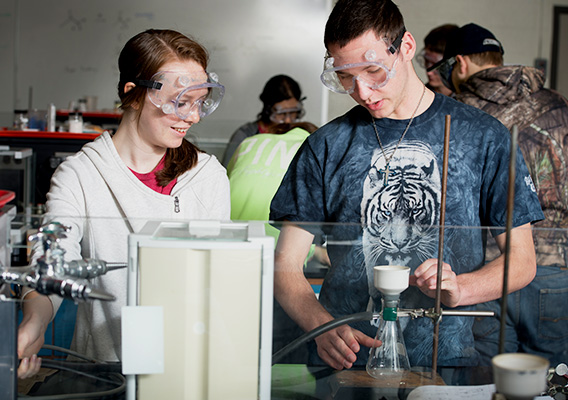
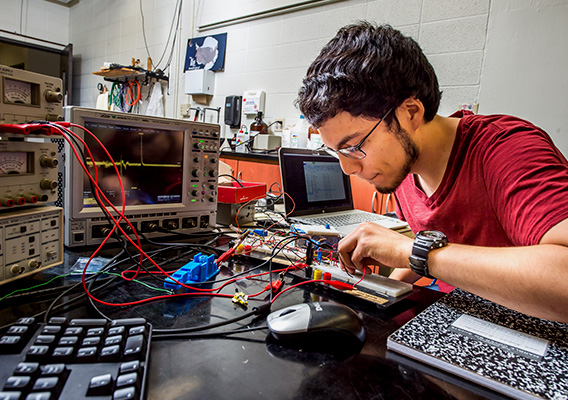
Potential Careers
Engineering graduates have strong foundations in math and science and stand out from the crowd when applying to jobs or graduate school. Depending on your degree path and interest area, you may find yourself in a variety of roles, including:
- Aerospace Engineer
- Agricultural or Biosystems Engineer
- Biomedical or Chemical Engineer
- Civil or Mechanical Engineer
- Computer or Electrical Engineer
- Environmental or Industrial Engineer
- Materials Engineer
Get More Information
Interested in learning more about UWRF or any of our 70+ areas of study? Just share your contact information and we'll be in touch!

